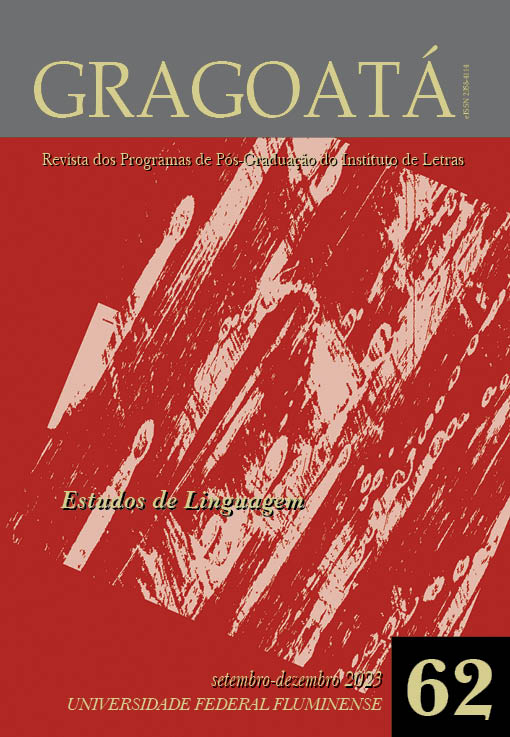Appreciation of Meaning: The Accent and Modulations of Content
DOI:
https://doi.org/10.22409/gragoata.v28i62.58650.ptKeywords:
semiótica, prosódia, incrementos, intensidadeAbstract
This paper explores the process of “content prosodization” introduced by Claude Zilberberg in the course of the formulation of his tensive semiotics. Inspired by the prosodic functioning of natural languages, with their ascending and descending accents and modulations, the author proposed various combinations of what he called “increments” (plus minus, minus plus, minus minus, etc.) to describe the modulations of content that sometimes rise toward the “meaning accent” (the most impactful content) and sometimes decline and move away from it. These movements are always associated with the oscillations of human sensibility both in the plane of expression and in the plane of content. But it is in the latter that we can evaluate our daily mechanisms of meaning appreciation, attributing greater or lesser prominence to it by making use of the increments. It is, therefore, a special way of expanding the theoretical and analytical potential of the semiotic model from categories that previously belonged only to the plane of expression. These theoretical propositions are illustrated here by some analyses of columns published in Brazilian newspapers.
Downloads
Downloads
Published
How to Cite
Issue
Section
License
Copyright (c) 2023 Gragoatá

This work is licensed under a Creative Commons Attribution 4.0 International License.
Authors who publish in Gragoatá agree to the following terms:
The authors retain the rights and give the journal the right to the first publication, simultaneously subject to a Creative Commons license CC-BY-NC 4.0, which allows sharing by third parties with due mention to the author and the first publication by Gragoatá.
Authors may enter into additional and separate contractual arrangements for the non-exclusive distribution of the published version of the work (for example, posting it in an institutional repository or publishing it in a book), with recognition of its initial publication in Gragoatá.

Gragoatá is licensed under a Creative Commons - Attribution-NonCommercial 4.0 International.











